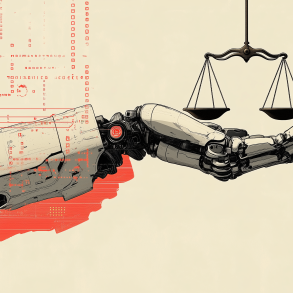
Verizon is harnessing generative AI to enhance customer support for its over 100 million phone customers, while simultaneously expanding its responsible AI team to address associated risks. Michael Raj, Verizon’s Vice President of AI for network enablement, detailed several initiatives, including a requirement for data scientists to register AI models for security reviews and heightened scrutiny on large language models to reduce bias and prevent toxic outputs.
Speaking at the VentureBeat AI Impact event in New York City, Raj and other experts described AI auditing as being in a formative stage. The event underscored the need for accelerated efforts in AI governance, especially as governmental guidelines remain broad, leaving much to be defined by private entities.
The event also addressed the frequent errors made by AI customer support agents, underscoring the importance of reliability in AI applications. Justin Greenberger, a senior vice president at UiPath, pointed out that the technology is advancing so rapidly that government regulators are only publishing the high-level guidelines, leaving private companies to define the details behind them. Rebecca Qian, co-founder of Patronus AI, added to the conversation about the unpredictability of LLMs, “In some ways, it feels like the Wild West.”
Verizon aims to equip its frontline employees with AI tools to better manage customer interactions. Raj stated, allowing human agents to concentrate on the more complex issues that require personal attention.
Our focus is to support agents with smart AI that can handle 80 percent of the repetitive stuff.
This would allow human agents to concentrate on the more complex issues that require personal attention. To enhance governance, Verizon has consolidated its AI and data management functions into a single organization that includes the Responsible AI unit. Raj noted, “This unit is scaling up to drive standards around privacy and respectful language,” marking it as a key element in Verizon’s strategy.
Greenberger also commented on the broader industry trend of AI model registration, “Models will need to be version controlled and audited,” similar to practices in the pharmaceutical industry. He suggested that companies should “increase the frequency of evaluating their risk profiles” due to the rapid pace of technological change.
The emergence of AI governance units marks a significant step for companies like Verizon in managing the complexities and risks associated with AI, as they strive to implement transparent, accountable, and ethical AI practices.









